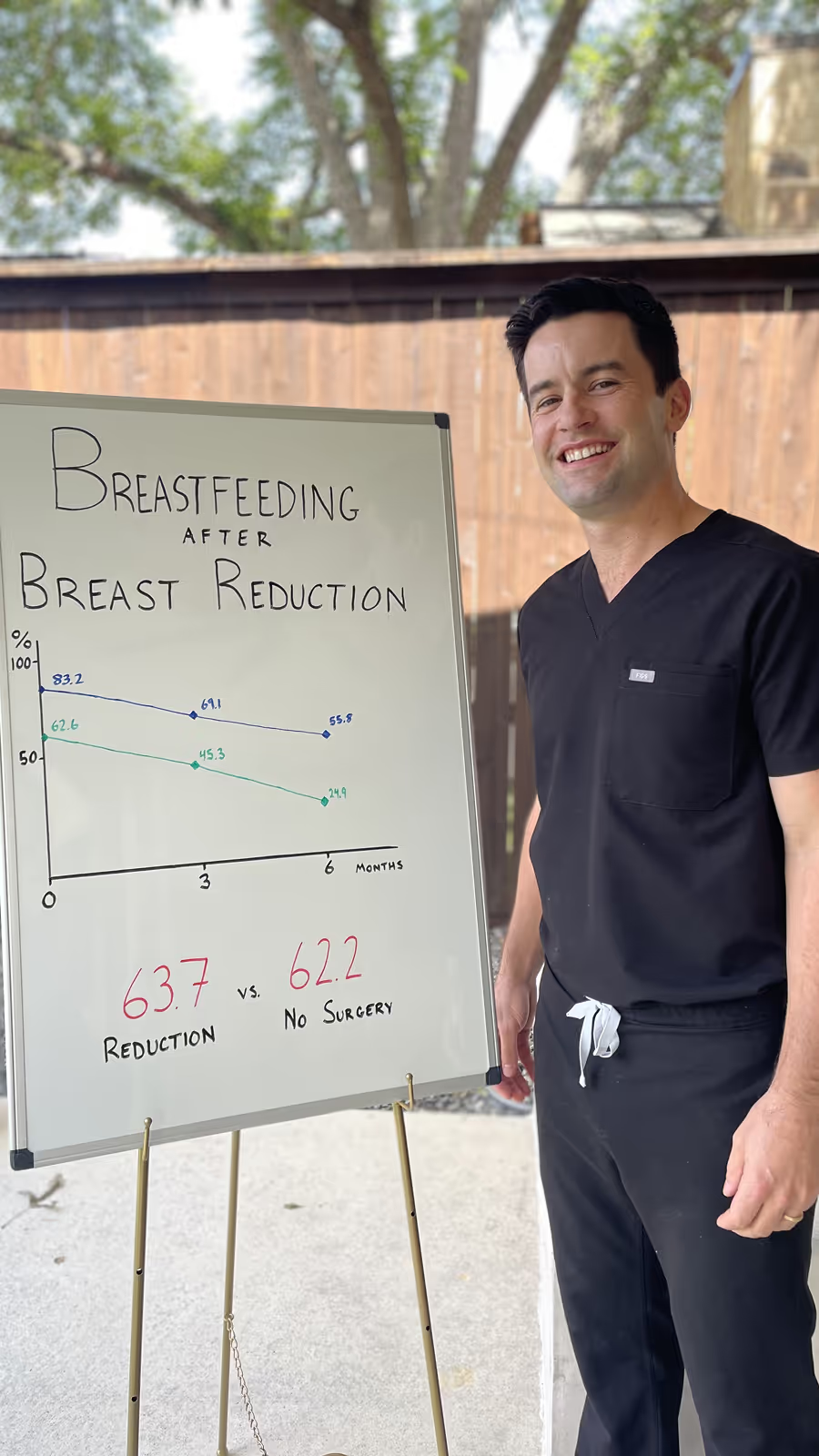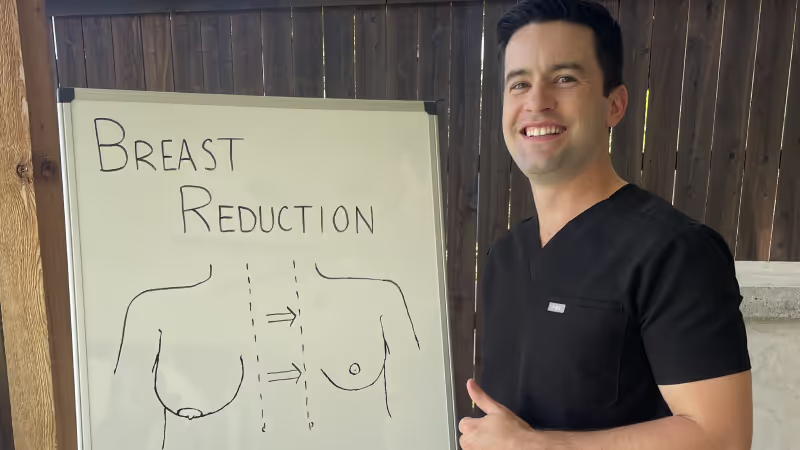Can I Still Breastfeed After a Breast Reduction? Here's What the Research Says
One of the most common—and understandable—questions young patients have before breast reduction surgery is: “Will I still be able to breastfeed?”
The short answer is: Probably.
The long answer is a bit more nuanced.
Breastfeeding Isn’t Guaranteed for Everyone—With or Without Surgery
It’s important to understand that not all women can successfully breastfeed, regardless of whether they’ve had surgery. According to the CDC, only about 79% of infants in the U.S. receive any breast milk at 1 month of age. By 6 months, that number drops to 56%. These numbers reflect a range of barriers to breastfeeding—physiological, practical, and social—that exist with or without surgery.
Weight, Breast Size, and Breastfeeding Outcomes
Many patients who seek breast reduction are overweight or obese, often due to a complicated interplay between body weight and breast size. Large breasts can make physical activity more difficult, which can contribute to weight gain—while excess body weight can also lead to increased breast volume. It's a bit of a chicken-and-egg scenario.
But here's the key point:
Higher BMI is associated with reduced lactational performance—regardless of whether a patient has had a breast reduction. In studies that compare breast reduction patients to non-surgical patients with similar BMIs, breastfeeding success rates are actually quite similar.
One Important Exception: Free Nipple Grafts
There is, however, one important surgical consideration:
If your reduction requires a free nipple graft—a technique where the nipple is completely removed and then grafted back onto the breast—you will not be able to breastfeed. This is because the milk ducts are permanently disconnected in that process.
That being said, free nipple grafts are only used in a small minority of large-volume breast reductions, and your surgeon will discuss this possibility with you beforehand if it applies.
So, Should Future Breastfeeding Impact Your Decision?
Based on published studies, a desire to breastfeed in the future should not be a major factor in deciding whether to proceed with a breast reduction. While there's never a guarantee, most patients maintain enough ductal and nerve integrity to at least attempt breastfeeding, and outcomes are comparable to women with similar health profiles who haven't had surgery.
Bottom Line
Breast reduction surgery can greatly improve quality of life—and for most patients, it doesn’t eliminate the possibility of breastfeeding later on. If breastfeeding is important to you, make sure to discuss your goals and concerns with your surgeon during your consultation so they can tailor the surgical plan accordingly.




